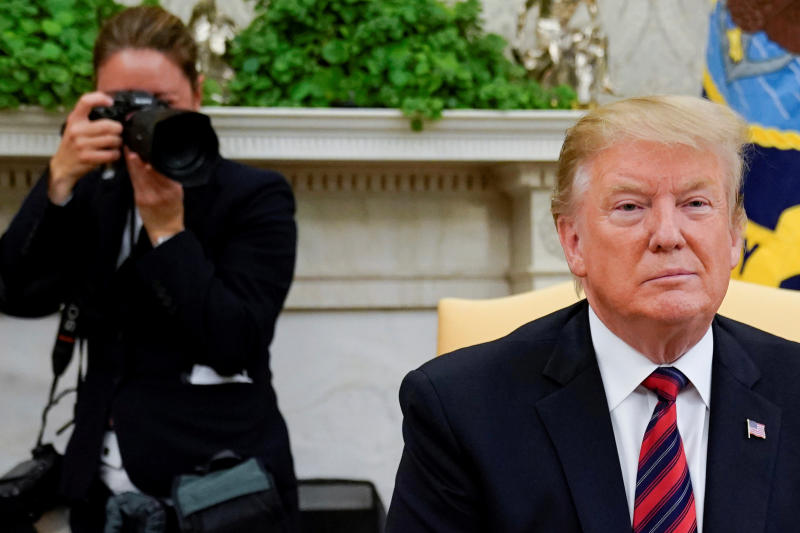
Southeast Asian stocks closed lower on Monday after US President Donald Trump threatened to hike tariffs on Chinese goods this week, rekindling trade tensions between Washington and Beijing, with Singapore leading the losses in the region.
Trump sharply escalated tensions between the world's two largest economies with tweeted comments on Sunday that trade talks with China were proceeding "too slowly", and that he would raise tariffs on $200 billion of Chinese goods to 25% on Friday from 10%.
China, the biggest trading partner of Southeast Asia, was considering cancelling a round of US talks set for this week because of Trump's comments, the Wall Street Journal reported.
"Trump's announcement regarding a possible increase in tariff on China will leave quite an impact ... there might be a possible fallout in the trade deal," AP Securities analyst Rachelle Cruz said.
"...We may see sustained profit-taking over the next few days (following Trump's comments on tariffs), especially with most markets sitting on gains from the last few months," said Liu Jinshu, director of research, NRA Capital.
Equity markets, which had been largely expecting a trade accord, fell sharply across export-reliant Asia as further talks were thrown into doubt.
The Singapore index, which is highly exposed to global trade, closed 3% weaker to its lowest level since April 2. The benchmark, which climbed 5.8% in April, was the biggest gainer in the region.
The United States and China are large export destinations for Singapore and an escalation in the conflict would mean severe headwinds for the city-state.
Financials led broad-based declines with DBS Group, Southeast Asia's largest lender, falling about 4%.
Indonesia's economy expanded more slowly than expected in the first quarter of this year, as investment dropped ahead of elections and campaign spending failed to sustain growth momentum.
Taking a cue from bleak GDP data, the Indonesian index closed 1% weaker at a four-month low, with sea transportation company Humpuss Intermoda diving more than 18%, and biodiesel and chemical products manufacturer Eterindo Wahanatama sinking about 17%.
Philippine shares ended 1.3% lower, dented by declines in financials. Shares of International Container Terminal Services and Bank of the Philippine Islands were among the worst performers on the index.
There is some uncertainty in the Philippine markets in the run-up to the general elections on May 13, AP Securities analyst Rachelle Cruz said.